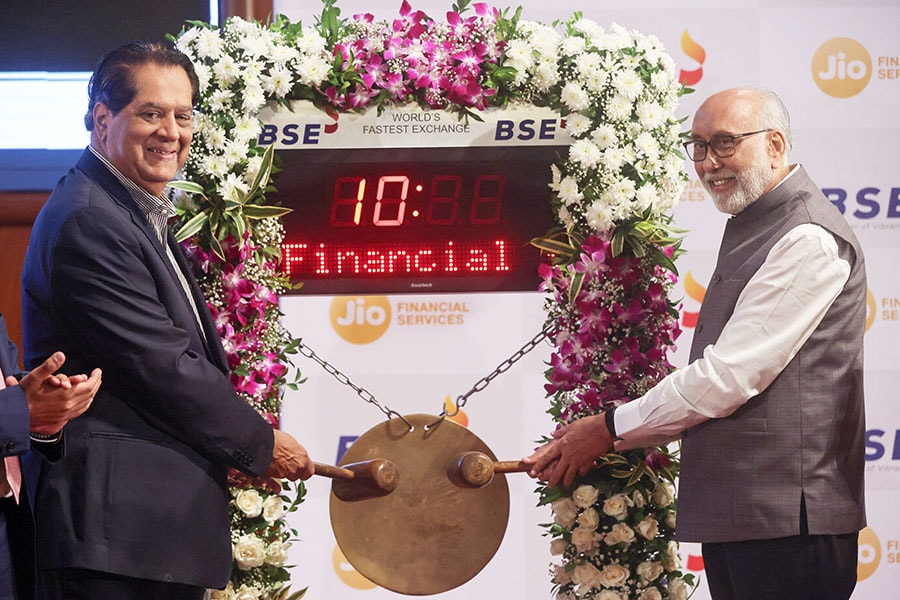
Jio Financial Services debuts at the stock exchanges: What's next?
Jio Financial Services will be dropped from both the Sensex and Nifty indices at the last traded price after end of the third day of its listing, which in this case is August 24
 Independent Director and Non Executive Chairman, Jio Financial Services Limited (JFSL), KV Kamath and Chairman Bombay Stock Exchange (BSE), Subhash S Mundra pose for a picture ahead of the listing ceremony of JFSL at the Bombay Stock Exchange in Mumbai, India, August 21, 2023.
Image: Reuters/Francis Mascarenhas
Independent Director and Non Executive Chairman, Jio Financial Services Limited (JFSL), KV Kamath and Chairman Bombay Stock Exchange (BSE), Subhash S Mundra pose for a picture ahead of the listing ceremony of JFSL at the Bombay Stock Exchange in Mumbai, India, August 21, 2023.
Image: Reuters/Francis Mascarenhas
Jio Financial Services (JFS), the demerged entity of Reliance Industries (RIL), ended trading on stock markets debut day at a 5 percent lower circuit. Shares closed at Rs251.75, after getting listed at Rs265 per share on the BSE. On the NSE, shares were listed at Rs262, closing at Rs 248.9 apiece. Discovered price of the stock was at Rs261.85, with a rough market capitalisation of Rs1.66 lakh crore.
According to Prashanth Tapse, research analyst, Mehta Equities, the Street was already aware of the selling pressure on the stock via exchange traded funds (ETF). “We believe the stock would face short-term selling pressure as the Street assumes the fair value of share price Rs150-180 apiece on stake valuations,” he adds.







